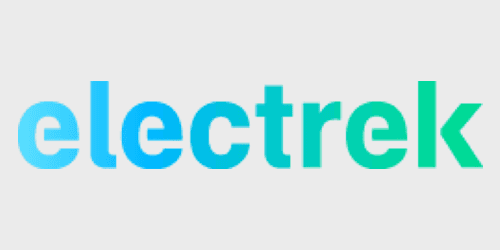
VW, Audi, and Porsche have all committed to using the Tesla-developed NACS connector starting in 2025. It’s one of the last dominos to fall towards universal adoption of the connector.
NACS has taken the industry by storm this year after Tesla released specifications of its charging connector in November 2022. It called it the “North American Charging Standard,” which was somewhat of an absurd name at the time, given that Tesla was the only company using it.
However, since Tesla is a majority of the US EV market, the company’s argument was that most of the cars and most of the DC charging stations in America already used Tesla’s connector, so it should be considered a de facto standard anyway.
For a few months, not many people took this seriously. However, Ford shook up the industry by announcing it would adopt the NACS plug on upcoming vehicles. Soon after, GM made the same move, and now basically everyone else has. It’s even been certified by the SAE as of today, so it’s out of Tesla’s hands now.
The only significant holdouts were Volkswagen Group, one of the largest automakers in the world (occasionally trading the “largest” title with current leader Toyota), and Stellantis.
Now, one of the last two dominos has fallen, as VW Group (or at least its major brands) announced today that it will use the NACS connector.
The announcement covers VW, Audi, Porsche, and the upcoming Scout brand. Smaller VW brands like Bugatti, Bentley, and Lamborghini weren’t part of today’s announcement.
The connector will come to vehicles starting in 2025, much like most other companies that have announced a similar move. Most other companies have also announced the availability of adapters in 2024, though VW says that it is “exploring adapter solutions for existing vehicles to access the Tesla Supercharger network, starting in 2025.”
Scout brand vehicles, which won’t be available until 2026 anyway, will all come with NACS inlets from the start.
Top comment by Axel Ekholm
"dominos to fall towards universal adoption of the connector."
I think universal is kind of wrong here, more like national or regional. It's only in north America where NACS is used. Every where else basicly something else is the de facto standard.
Volkswagen’s announcement is a particularly important one, not just because of its size as an automaker but because of its influence over Electrify America, a major charging network that was spun off from and funded by VW as part of the company’s penalty for the Dieselgate emissions scandal. VW highlighted Electrify America several times in its press release announcing NACS adoption.
This could be one part of why VW was a little slower to adopt the standard. Not only is it a large company with a lot of moving parts, but it has its “own” charging network that “competes” with Tesla’s Supercharger network, and which heretofore has been based on the CCS connector (though Electrify America did say it would add NACS to its network months ago).
Another part is likely the timing of SAE’s NACS certification being unveiled today.
There is now still only one major automaker that isn’t planning to use the NACS connector – Stellantis. However, given that the SAE certification has just come through and that Stellantis is part of a major charging network push by seven automakers that will install NACS chargers, we can only imagine it will follow suit soon and be the last domino to fall.
FTC: We use income earning auto affiliate links. More.



Comments